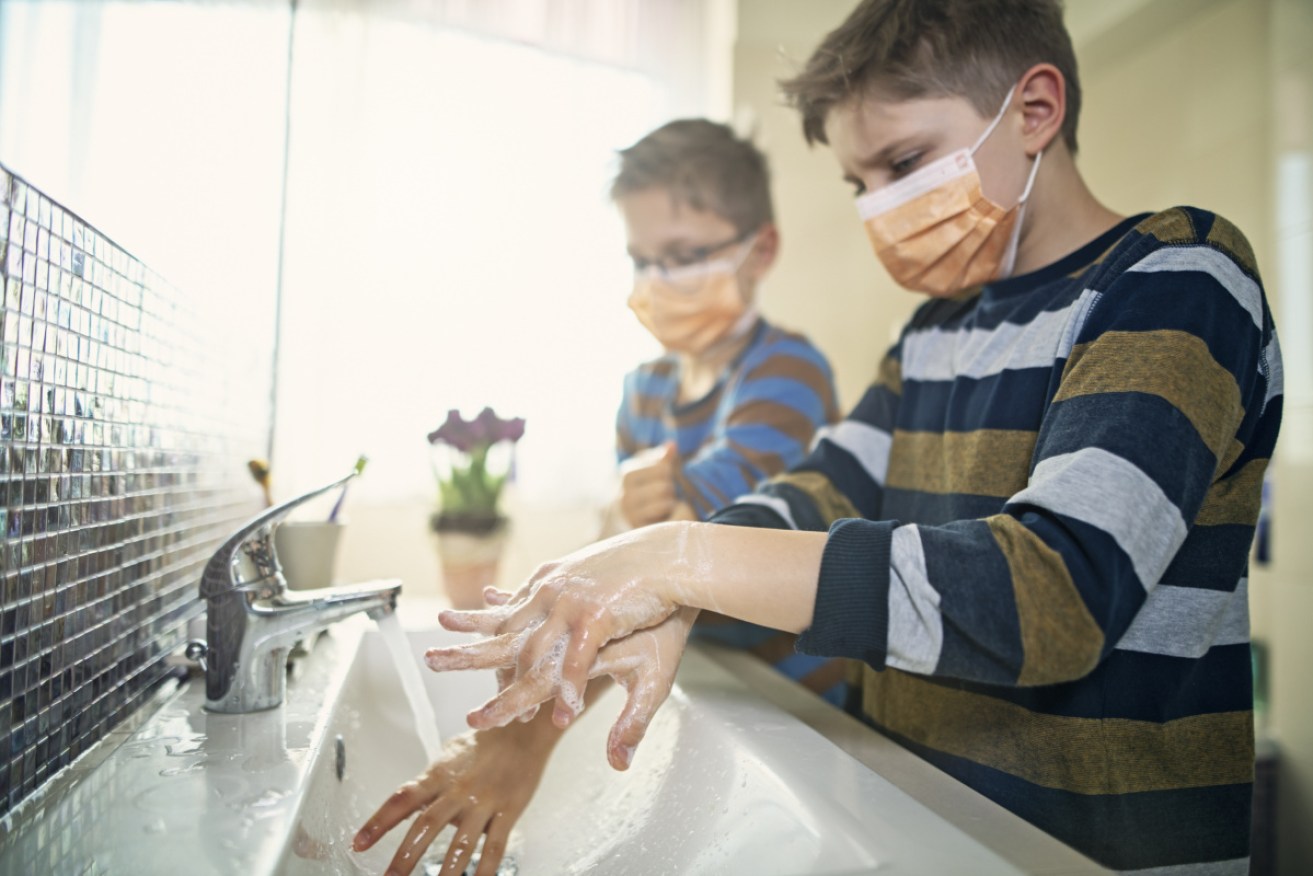Wash your hands: Great for battling COVID, bad for the bacterial health of our plumbing


Well done, boys! Your diligence could be helping to build a super germ colony in the plumbing beneath the sink. Photo: Getty
Diligent hand washing has helped keep COVID-19 from overrunning Australia, but new research shows it is “clogging up sinks” with colonies of disease-causing bacteria.
In the largest study of sink bacteria conducted outside of hospitals, researchers from the University of Reading concluded the plumbing under bathroom and kitchen sinks may have to be redesigned – and subject to more rigorous cleaning – to prevent these colonies from forming and infecting humans.
While the field work for the study was carried out in 2019, the pandemic has undoubtedly aggravated the situation because literally billions of people have been washing their hands more often, every day.
So the colonies are only getting bigger and could spread beyond our sinks.
Skin cells probably acting as a kind of glue
Samples were taken from 123 sinks in non-clinical settings at the University of Reading, such as toilets and bathrooms in teaching, research and social spaces.
The samples returned distinct microbiome, dominated by certain bacteria.
Some of the results were surprising.
Human skin was identified as a primary contributor to the below‐strainer sink bacterial community.
Every minute, we lose between 30,000 and 40,000 dead skin cells, and washing our hands vigorously dislodges plenty of these cells.
We’re effectively washing off “dirty” skin.
The researchers expected that bacteria from the gut – and expelled in faeces – would dominate these colonies, but “it seems that by and large the bacteria living on the skin of our hands are feeding the community in the drains beneath sinks”.
The plumbing area found beneath sinks revealed microbial communities dominated by a group of bacteria called Proteobacteria.
This group includes pathogens such as salmonella and e. coli, which can cause serious disease, “although the proportion of bacteria from that family was low”.
Higher concentrations were found of the common Moraxellaceae and Burkholderiaceae bacteria, which can cause infections but are mostly harmless to humans.
Plumbing determines the make-up of the colony
The type of plumbing system had a significant effect on which family was more abundant.
Below-sink strainers were found to have Moraxellaceae bacteria, while P-trap sinks had higher amounts of Burkholderiaceae.
Dr Hyun Soon Gweon, a lecturer in Bioinformatics for Genomics at the University of Reading and a corresponding author of the study, said: “The mantra to ‘wash your hands’ to fight coronavirus transmission has highlighted the importance of not only good hand hygiene, but also the need for well-designed and regularly cleaned sinks.
“It is possible to spread bacteria to the surrounding areas of your sink, where they can grow and persist.”
Lead author of the study Zoe Withey, a PhD researcher at the University of Reading, said: “This means that we need to be very aware that what we are putting down our sinks is affecting the bacterial community underneath.
“These areas may not be reached during routine cleaning, and this could lead to communities containing hardier, resistant microbes.”
The scientists point out that all the sinks where samples were taken were regularly cleaned.








